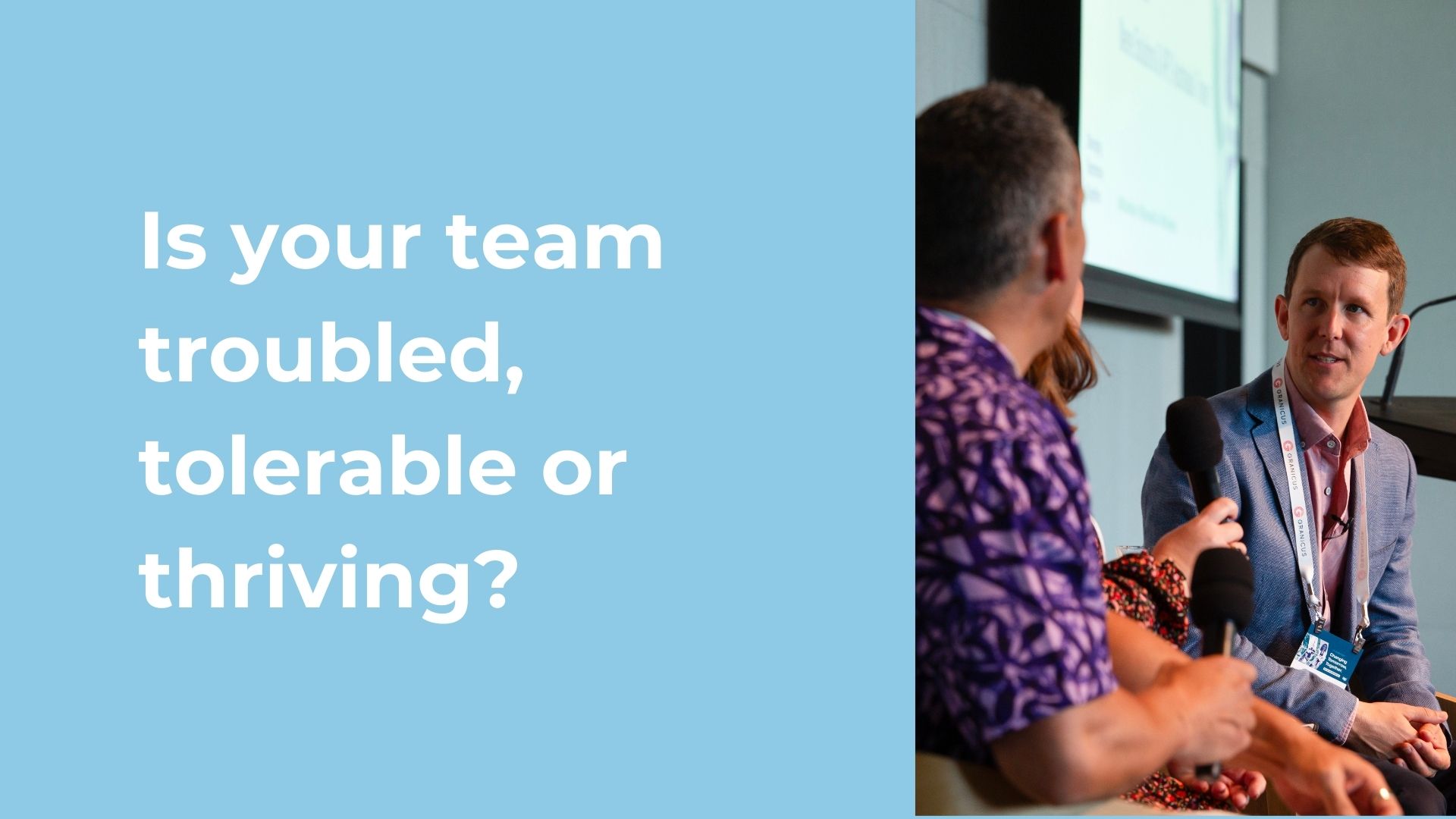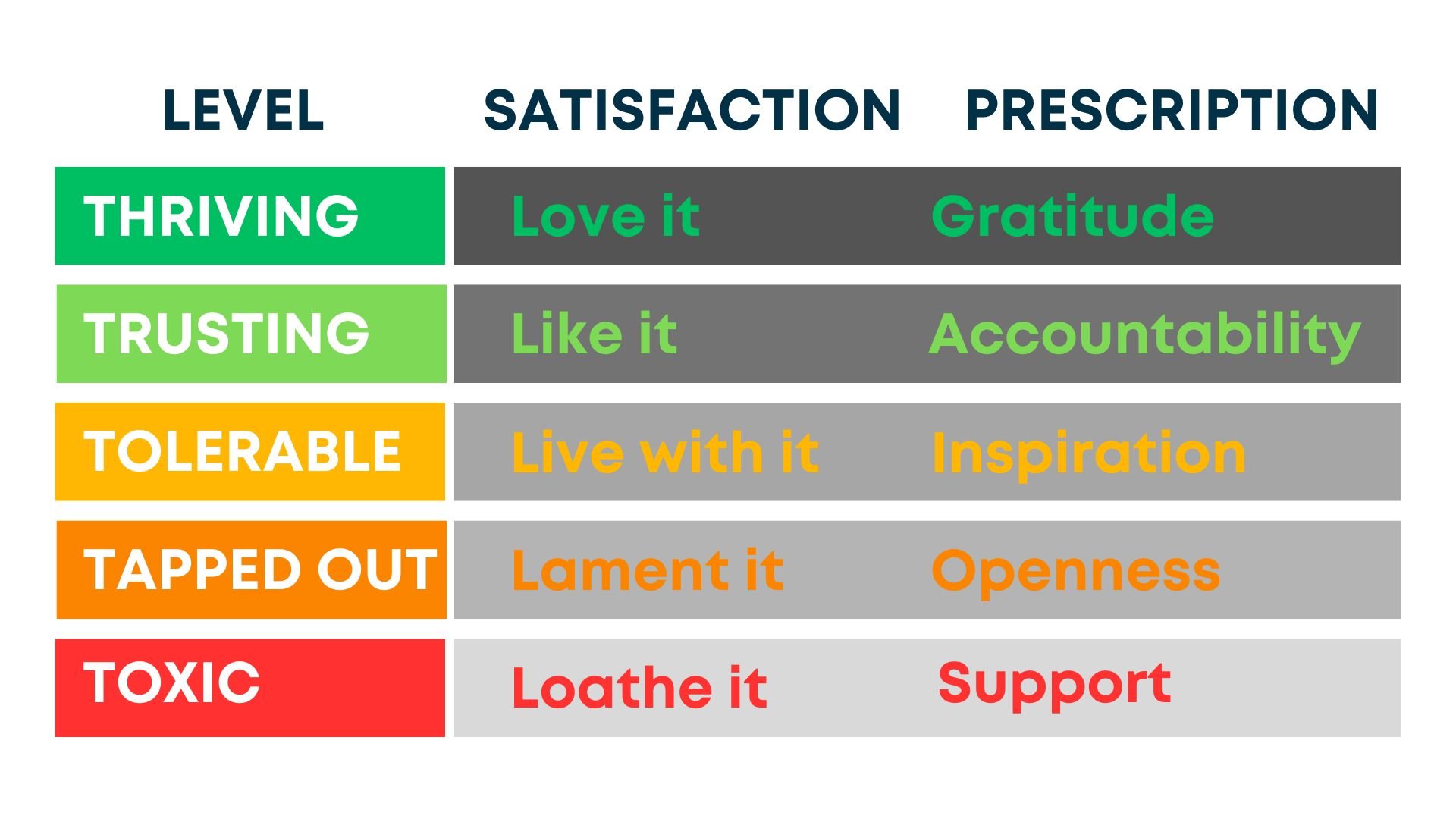Is your team toxic, tolerable or thriving?

Team culture is like the weather. It's always there - in the background, conditioning us to feel certain things and behave certain ways.
Recently, I've been having lots of conversations with people who are a bit sick of their teams. People are pretty tired and overworked. Add in some challenging economic and social conditions, and it's no surprise that people are tapping out in record numbers.
It's got me revisiting the different workplace cultures I've experienced - some good, some great, some terrible.
Moving up the table
I reckon the path to improving your team culture is a bit like a leaderboard in a sports competition. You may reach the top, but you need to remain vigilant to stay there.

Toxic teams
You know you're in a toxic team when you find yourself googling things like:
- How to deal with bullying at work
- How to respond to sexist comments
- What to do if your workplace is unsafe.
I've googled all those things in my time.
And it can leave you loathing your work and finding yourself in tears when you least expect it.
My prescription? Support.
The best thing when you're working in a toxic team is to get some support. This could be mentoring, counseling, legal advice, or simply another job. Anything that will support you to progress through the toxic situation.
Tapped out teams
Do you find yourself moaning to your partner about your workplace on a Friday night?
You're probably in a tapped-out team.
When you're not religiously searching through job listings, you're dreaming about how to turn your side hustle into a full-time gig. The environment might not be openly toxic, but you've lost the spark for your work (if you ever had it).
My prescription? Openness.
In a tapped-out culture, something is happening beneath the surface that people are afraid to talk about.
When dark skies permanently loom overhead, the only thing that will clear them is a good dose of wind. We need to clear the air with some brave, open conversations.
Tolerable teams
Most organizations have team cultures that are 'good enough'. Research from Gallup estimates that 67% of employees in Australasia are "not engaged" in their work.
If your team is just good enough, you'll find yourself complaining about work more often than not. When people ask "How's work?" you will probably muster a quick "all good" - hoping they ask no more questions.
Often, teams like this don't go beyond the surface level. You're doing good work and there's no outright warfare, but it all feels a bit flat.
My prescription? Inspiration.
If a team is tolerable, often we need a dose of inspiration to help us see what's possible. Stories from outside your team can help to paint a new picture of what's possible. They also create a new high to aim for. (That's often where my keynotes come in handy!)
Trusting teams
"Trust is the glue of life... It's the foundational principle that holds all relationships." - Stephen Covey
A trusting team is one built on strong relationships, openness, and diverse thoughts. If you find yourself on a Friday night happily chatting about your week at work, you might be working in a trusting team culture.
And yet something may be missing - because trust alone does not always lead to traction.
My prescription? Accountability.
If you are working in a trusting team, you may need some extra accountability to help you achieve your full potential and achieve the inspirational team culture you seek.
Thriving teams
Working in a thriving team is a wonderful experience. I hope you experience it someday - if you haven't already.
Having a strong purpose, clear and appropriate cultural norms, healthy feedback, ongoing learning and development, the freedom to be yourself, and the satisfaction of doing good work effectively... it's life-affirming.
But most of us never get close. Only 23% of employees are "engaged", according to Gallup's research.
My prescription? Gratitude.
If you're in a thriving team, it might be tempting to rest on your laurels. But what got you there won't keep you there.
I believe that gratitude is key to remaining a thriving team. Gratitude requires us to be present, to notice, and to celebrate what's working and what's not. And the work is never finished.
Does this model resonate?
If this model has struck a chord for you, I'd love to hear from you. Let me know at paul@paulmcgregor.co.nz:
- Where's your team on the table?
- Where would you like to be?
- What do you think would help you take the next step?